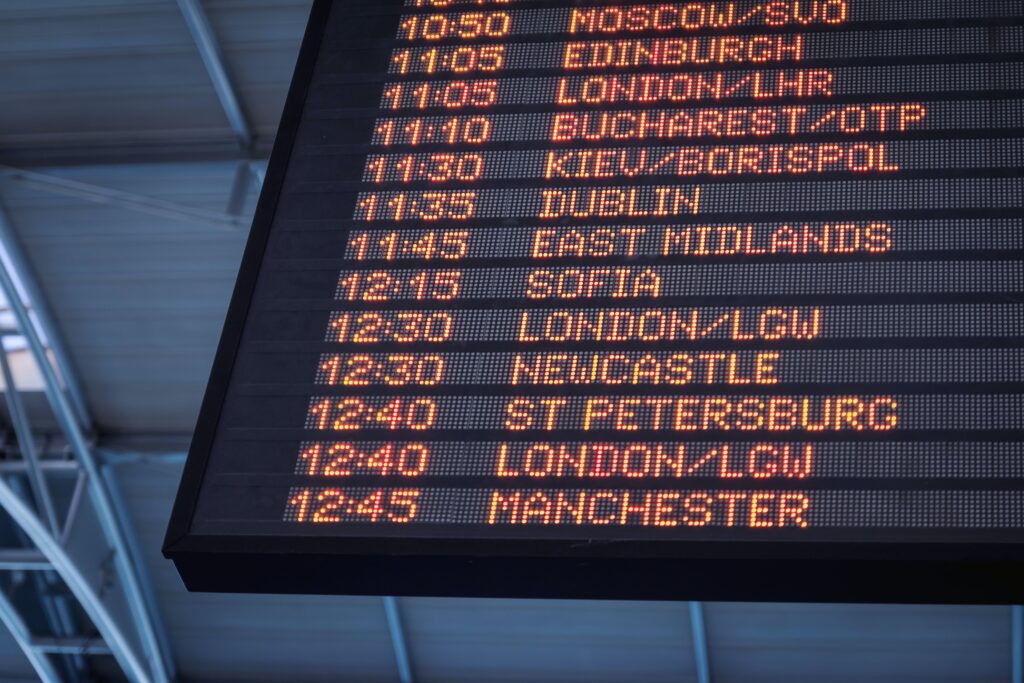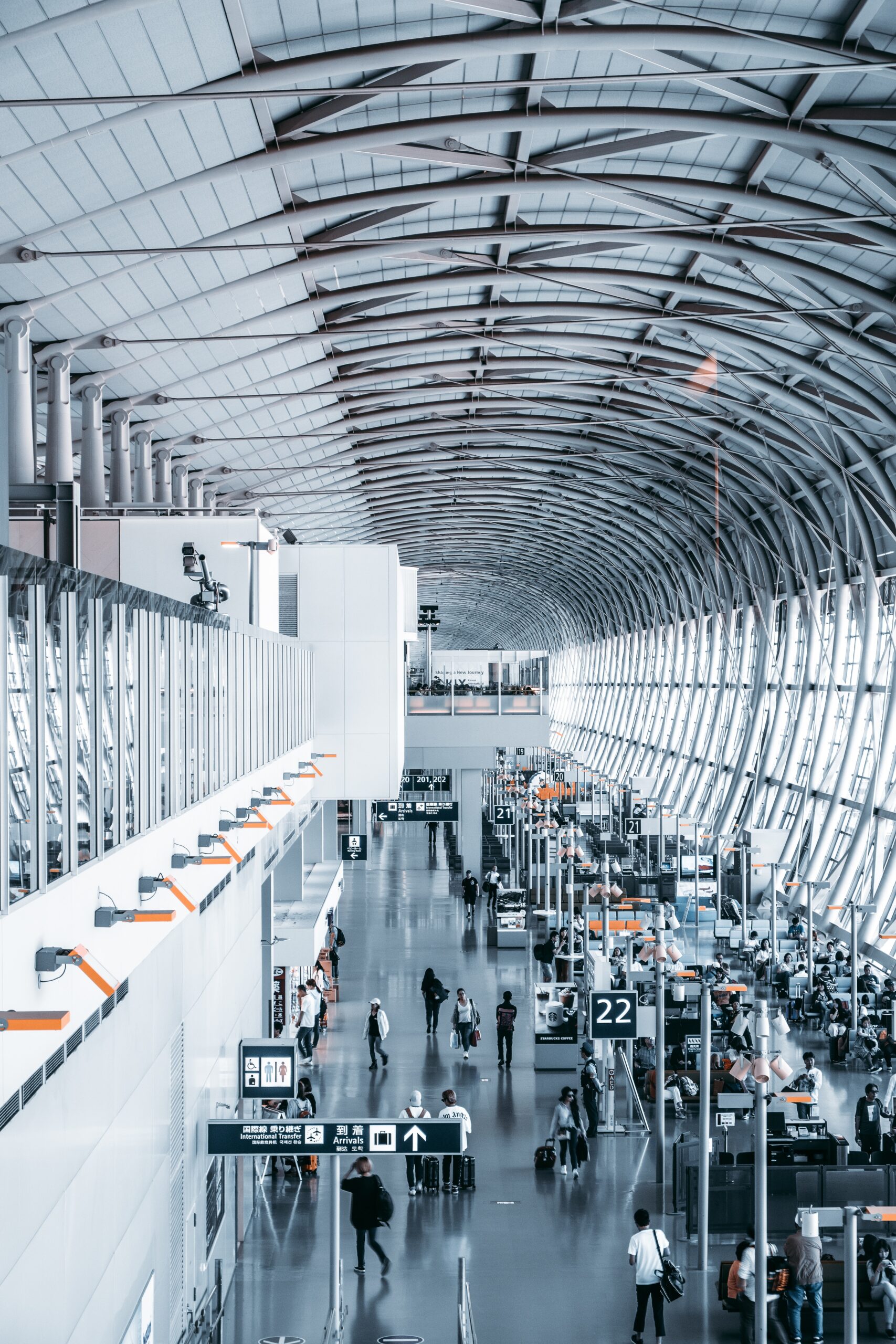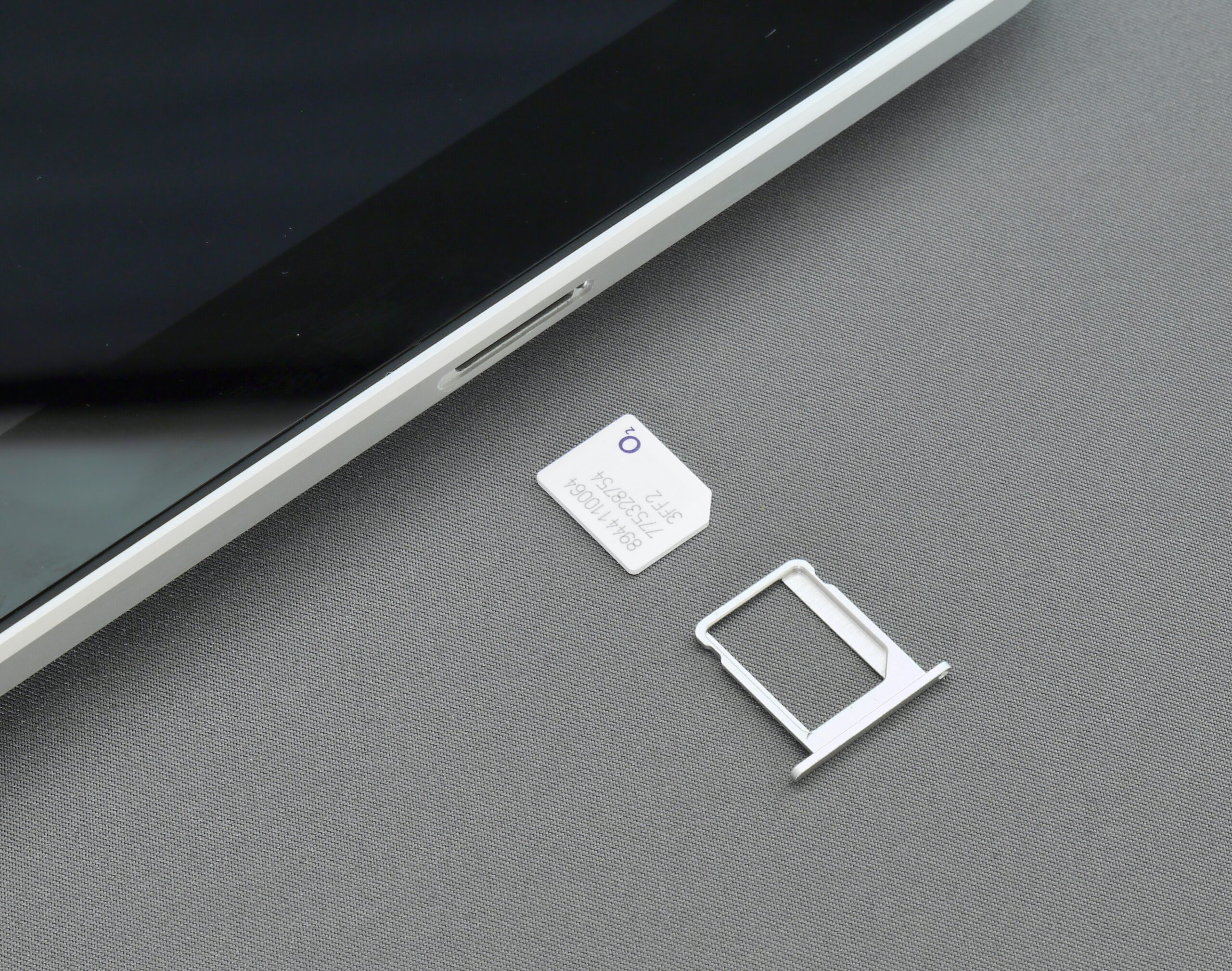Nigeria Transportation Guide
Nigeria Transportation Guide: Transportation relies on diverse modes: bustling cities with traffic, domestic flights, buses, taxis, and water transportation in some regions.


Nigeria Transportation Guide – International Airports
Nigeria has several international airports that serve as major entry points into the country for international travelers. These airports are located in various cities across Nigeria and facilitate both domestic and international flights. Here are the main international airports in Nigeria:
Murtala Muhammed International Airport (LOS): Located in Lagos, Murtala Muhammed International Airport is one of Nigeria’s busiest and most important international airports. It serves the city of Lagos and the surrounding region and offers numerous international flights to destinations across Africa, Europe, the Americas, and Asia.
Nnamdi Azikiwe International Airport (ABV): Situated in the capital city, Abuja, Nnamdi Azikiwe International Airport serves as a major gateway to Nigeria’s political and administrative center. It offers international flights to various destinations.
Port Harcourt International Airport (PHC): Located in Port Harcourt, this airport serves the oil-rich Niger Delta region of Nigeria and provides international flights to selected destinations.
Mallam Aminu Kano International Airport (KAN): Situated in Kano, in northern Nigeria, this airport offers international flights, particularly to destinations in the Middle East and North Africa.
Akanu Ibiam International Airport (ENU): Akanu Ibiam International Airport is located in Enugu in southeastern Nigeria. It serves the region and provides international flights to selected destinations.
Kotoka International Airport (ACC) – Ghana: While not in Nigeria, Kotoka International Airport in Accra, Ghana, is often used by travelers in southwestern Nigeria as an international gateway due to its proximity. It offers flights to various international destinations.
Kotoka International Airport (LBV) – Equatorial Guinea: Malabo International Airport in Malabo, Equatorial Guinea, is also used by travelers in southern Nigeria for international flights, particularly to destinations in Central and West Africa.
National Airports
In addition to the major international airports, Nigeria has numerous domestic or national airports that serve various cities and regions within the country.
Nnamdi Azikiwe Domestic Airport (ABV): This domestic airport is part of the Nnamdi Azikiwe International Airport complex in Abuja and handles domestic flights within Nigeria.
Port Harcourt Domestic Airport (PHC): Situated in Port Harcourt, this domestic airport serves the Niger Delta region and operates domestic flights.
Mallam Aminu Kano Domestic Airport (KAN): Located in Kano, this domestic airport is adjacent to Mallam Aminu Kano International Airport and serves domestic flights within Nigeria.
Akanu Ibiam Domestic Airport (ENU): This domestic airport is part of Akanu Ibiam International Airport in Enugu and handles domestic flights within Nigeria.
Ibadan Airport (IBA): Serving the city of Ibadan in southwestern Nigeria, this airport offers domestic flights to other Nigerian cities.
Benin City Airport (BNI): Located in Benin City, this airport serves the Edo State and provides domestic flights within Nigeria.
Kaduna Airport (KAD): Situated in Kaduna, this airport serves northern Nigeria and operates domestic flights.
Owerri Airport (QOW): Owerri Airport serves Owerri, the capital of Imo State, and offers domestic flights within Nigeria.
Akure Airport (AKR): Akure Airport serves the city of Akure in Ondo State and provides domestic flights.
Sokoto Airport (SKO): Located in Sokoto, this airport serves the northwestern region of Nigeria and handles domestic flights.
Jos Airport (JOS): Serving Jos in Plateau State, this airport provides domestic flights to other Nigerian cities.
Yola Airport (YOL): Yola Airport serves Yola in Adamawa State and offers domestic flights within Nigeria.
Bauchi Airport (BCU): Located in Bauchi, this airport handles domestic flights to various destinations within Nigeria.
Katsina Airport (DUM): Katsina Airport serves Katsina in northern Nigeria and provides domestic flights.
Nigeria Transportation Guide – Trains
Nigeria has a limited passenger train system that connects some major cities and regions within the country. The train network is not as extensive as in some other countries, and the railway infrastructure has faced challenges over the years. However, efforts have been made to revitalize and modernize the railway system in Nigeria. Here are some key points about trains in Nigeria:
Nigerian Railway Corporation (NRC): The Nigerian Railway Corporation is the state-owned company responsible for operating the railway services in Nigeria. It oversees both passenger and freight train services.
Train Routes: As of my last knowledge update in September 2021, Nigeria had several train routes, including the Lagos-Kano line, the Lagos-Port Harcourt line, the Lagos-Abeokuta line, and the Abuja-Kaduna line, among others. These routes connect major cities and regions within the country.
Abuja-Kaduna Line: The Abuja-Kaduna railway line is one of the more popular and frequently used passenger train routes in Nigeria. It connects the capital city, Abuja, to Kaduna in the northern region. The train service on this route is known for its relative efficiency and comfort.
Efforts at Modernization: The Nigerian government has undertaken initiatives to modernize and expand the railway network. New trains and rolling stock have been introduced, and efforts have been made to upgrade the existing rail infrastructure.
Challenges: The Nigerian railway system has faced challenges such as inadequate maintenance, security concerns, and funding issues. These challenges have affected the reliability and expansion of the railway network.
Potential for Growth: The revitalization and expansion of the railway system in Nigeria have the potential to ease transportation challenges, reduce road congestion, and enhance trade and commerce within the country.


Nigeria Transportation Guide – Buses
Buses are a widely used mode of transportation in Nigeria, particularly for intercity and intracity travel. Nigeria has a well-developed road network that connects cities and towns, making buses a convenient and accessible means of transportation. Here are some key points about buses in Nigeria:
Interstate Buses: Long-distance travel between cities and states in Nigeria is primarily served by interstate bus services. These buses are available in various sizes, from large coaches to smaller minibuses, and they operate on both paved highways and less-developed roads.
Intercity Routes: Major intercity bus routes connect Nigeria’s major cities, including Lagos, Abuja, Kano, Port Harcourt, Ibadan, Kaduna, Enugu, and others. These routes are often serviced by multiple bus companies, providing travelers with options.
Bus Terminals: In major cities, there are designated bus terminals or motor parks where intercity buses arrive and depart. These terminals are bustling transportation hubs where passengers can purchase tickets, board buses, and access other amenities.
Intracity Buses: Within cities, there are various types of intracity buses that cater to local transportation needs. These include commuter buses, minibuses, and shared taxis. The availability of these services can vary by city.
Fares: Bus fares in Nigeria vary depending on the distance traveled, the type of bus, and the route. Prices are generally reasonable, making buses an affordable option for many Nigerians.
Informal Transport: In addition to formal bus services, there are also informal modes of transportation, including motorcycle taxis (okadas) and tricycle taxis (keke napeps), which are commonly used for short trips within cities.
Transportation Apps: Some Nigerian cities have transportation apps that allow passengers to book rides with registered drivers for added convenience.
Payment Methods: Cash is the most common method of payment for bus fares in Nigeria. However, some larger bus companies may accept electronic payments or mobile money.
Links of interest
Airlines:
Arik Air Website
Air Peace Website
Dana Air Website
Med-View Airline Website
Azman Air Website
Trains:
Ride-Sharing:


We recommend
Nigeria travel tips
Our guide offers essential Nigeria travel tips and insights for an unforgettable journey. Plan your trip with us!
Nigeria Transportation Guide – SIM Cards
To get a SIM card in Nigeria for travelers:
Documentation: Bring a copy of your passport and a passport-sized photo for SIM card registration.
Registration: Complete the registration process at the store as required by local regulations.
Top-Up: Recharge your SIM card with credit for calls, texts, and data. Top-up cards are available widely.
Data Packages: Explore data packages for internet access. Choose a plan based on your needs and duration of stay.
Coverage: Check network coverage, especially if traveling to remote areas. MTN and Airtel generally have widespread coverage.
Emergency Numbers: Save local emergency numbers and relevant contacts in your phone.
Balance Inquiry: Learn how to check your balance to monitor usage and avoid unexpected charges.
Dual SIM Phones: If your phone supports dual SIM cards, you can keep your home SIM for calls from home while using a local SIM for local communication.
SIM Card Removal Tool: Carry a SIM card removal tool for easy switching if needed.
Language Barrier: Be patient, and use basic English or local phrases when interacting with store staff.
Coverage Maps: Refer to coverage maps provided by the network operators to understand signal strength in different regions.
Lost SIM: Report a lost or stolen SIM card immediately. Providers can deactivate the card and issue a replacement.
Recharge Options: Explore various ways to recharge your credit, including online, through the provider’s app, or at physical locations.
Validity: Check the validity period of your SIM card. Some may expire if not used or recharged within a specific timeframe.
Internet Settings: Configure your phone’s internet settings. Providers usually provide instructions or assistance for manual setup.
Currency Converter
Currency Converter EUR/USD: Mon, 2 Jun.
Unit Converter
Nigeria Transportation Guide – Maps
What map do you need?
Choose your destination
More information about this country







